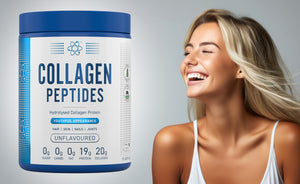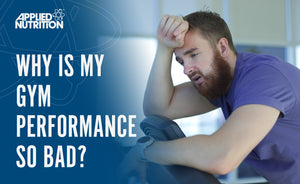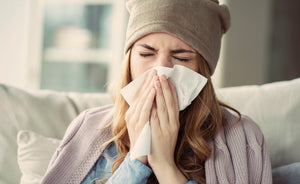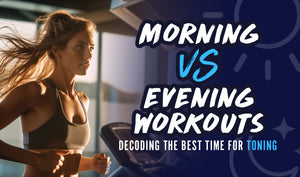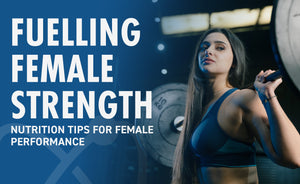ALL ABOUT THE MENOPAUSE
Nov 28, 23 | News | 0 Comments

The menopause refers to the time in a woman’s life when her periods stop as a result of the loss of ovarian reproductive function. The menopause usually occurs between 45 and 55 years of age with the average age of the menopause in the UK being 51.
The two main functions of the human ovaries are producing eggs and reproductive hormones.
Eggs are important for reproduction. As women get older, the number of eggs in the ovary decreases and their ability to conceive diminishes. The menopause results in a reduction in ovarian hormone production which includes the hormones oestrogen, progesterone and testosterone. Ovarian hormone production includes the hormones oestrogen, progesterone and testosterone. Oestrogen, the main hormone produced by the ovaries, plays an important role in a woman’s ovulation cycle and preparation of the womb for implantation of a pregnancy. Oestrogen also plays an important role in maintaining bone and heart health as well as brain function during the reproductive years.
As ovarian function declines when a woman approaches the menopause, less oestrogen is produced by the ovaries, causing the body to behave differently. Women initially experience a change in menstrual cycle pattern which initially become infrequent, and the cycles become slightly longer (e.g. cycles 6-7 weeks apart) and women may start experiencing menopausal symptoms.
This phase is called the ‘early peri-menopause’ and the average age for this is 47. Subsequently, many women experience worsening of their menopausal symptoms and their menstrual cycles become less frequent and may become a few months apart. This is called the ‘late peri-menopause’ and the average age of this is 49. When a woman has total cessation of her menstrual cycles for 12 months or more, this will be defined as the ‘menopause’ and the average age of this is 51.
What do women experience when they go through the menopause?
All women experience the menopause at some stage in their life. It is estimated that more than 80% of women will be menopausal by the time they reach the age of 54. Not all women will experience menopausal symptoms when they go through the menopause, although a majority of women (80-90%) will experience menopausal symptoms. These symptoms will, on average, last 7 years or more.
The commonest symptoms experienced by women are hot flushes and night sweats, which are experienced by 70-80% of women. Other symptoms include disturbed sleep and insomnia, low mood, low libido, impaired memory and concentration, and symptoms of vaginal dryness.
Symptoms as a result of hormonal changes can be frustrating and inconvenient, however, Applied Nutrition have a few supplements that can help with hormone regulation which can in turn make symptoms milder.
Berberine helps with hormone balance as well as helps to support weight loss and burn fat whilst also promoting a healthier heart. Another supplement to consider is MCT Oil. MCT Oil may help to balance hormones like oestrogen and progesterone, which can be disrupted during menopause and peri-menopause. This can lead to improved mood, fewer hot flashes and better sleep.
When the ovaries have ceased their production of oestrogen, other changes may follow as a result of this fall in hormone levels, and this may have more of an effect on long-term health. Most commonly these changes affect the strength and density of bones, increasing the risk of the bone-thinning disease osteoporosis. The bones of the female skeleton depend on oestrogen to maintain their strength and resistance to fracture. However, there are no obvious symptoms of Osteoporosis – the first sign may be a fracture of a bone. In addition, oestrogen deficiency after the menopause has also been shown to result in an increase in the risk of heart disease in women.
In order to retain as bone density and joint health, taking Collagen supplements is a good idea. Applied Nutrition’s Collagen range are easily digestible and can be added to a range of hot or cold beverages. To find out more about the benefits of Collagen, you can read our blog HERE.
Diagnosing the menopause
Menopause can be diagnosed as early as 30. Early menopause or premature ovarian insufficiency (POI) – is defined as a loss of normal function of ovaries before the age of 40. It affects approximately 1 in 100 women, however a small percentage of around 0.1 per cent will develop premature ovarian insufficiency by the age of 30.
The diagnosis of the menopause should be made by assessing the clinical picture and based on a combination of menopausal symptoms and change in menstrual cycle pattern in women beyond the age of 45. Hormonal testing (Follicle Stimulating Hormone – FSH) is not helpful in diagnosing the menopause as the level of the hormone can fluctuate from one month to another and may not give an accurate assessment.
Menopause Audit Tool
These are the most commonly established symptoms of menopause. Have a look and see how many of the symptoms you are experiencing. You may want to make a note of how many symptoms to take to your doctor when you go for your first appointment.
Common Symptoms
- Hot Flushes
- Night Sweats
- Loss of Libido
- Vaginal Dryness
- Irregular Periods
- Fatigue
- Hair Loss
- Sleep Problems
- Dizziness
- Weight Gain
- Bloating
- Allergies
- Brittle Nails
- Osteoporosis
- Irregular Heartbeat
- Changes in Body Odour
- Bladder Problems
- Anxiety
- Irritability
- Panic Disorders
- Difficulty in Concentrating
- Mood Swings
- Foggy Brain
- Depression
- Breast Pain
- Headaches
- Joint Pain
- Electric Shock
- Burning Mouth
- Nausea and Digestive Problems
- Dental Problems
- Muscle Tension
- Dry and Itchy Skin
- Tingling Extremities
What interventions are available to women going through the menopause?
The menopause transition can have a considerable impact on many women. Most women will experience menopausal symptoms, and for a significant proportion troublesome symptoms may continue long-term. There should be a holistic and individualised approach in advising women, with particular attention being given to lifestyle advice and diet modification.
This should be an opportunity to discuss the advantages and disadvantages of their management options including Hormone Replacement Therapy (HRT), alternative therapies and evidenced based supplements.
The menopause can have an impact on both mental health and stress levels, both because of the hormonal and physical changes that occur for each woman as part of the menopause. Supplementing with Applied Nutrition’s Ashwagandha may help to decrease stress levels, as studies have shown that it supports emotional balance, relaxation, and general wellbeing.
As well as this, the menopause may impact your skin and cause your hair and nails to become more brittle. Our Skin, Hair and Nails capsules will support your beauty regime as we know that when you are looking good, you are feeling great! The capsules provide key nutrients for healthy hair, skin and nails including zinc, vitamins C and E, biotin and collagen.
Hormone Replacement Therapy (HRT)
HRT is the most used treatment for managing menopausal symptoms and HRT has been shown to be the most effective intervention for managing menopausal symptoms. The main component of HRT is oestrogen.
Oestrogen can be given in the form of oral tablets or delivered through the skin (transdermal) in the form of patches, gel, or spray. Giving oestrogen through the skin has a very neutral effect on the way the body breaks down the hormones and does not increase the risk of blood clots compared to that in women who are not taking HRT. Giving oestrogen through the skin should therefore be the preferred way of giving oestrogen in women at increased risk of blood clots such as in women who are overweight or women who have an increased background risk for blood clots.
When HRT is started, there may be a need to adjust the dose of oestrogen replacement until the optimal replacement dose is achieved as there may be varied absorption between different individuals.
Progestogen should also be given to women (who have not had a hysterectomy) to protect the lining of the womb from the effect of oestrogen. This can be given in a way that results in a monthly bleed if the woman is peri-menopausal and is still having periods or in a continuous way that does not result in a monthly bleed in women who are menopausal.
Progestogens are available in the form of micronised progesterone tablets or as synthetic progestogens. Micronised progesterone is plant derived and is like the chemical structure of progesterone produced by the human ovaries (bioidentical). Micronised (natural) progesterone has some advantages over synthetic progestogens as it has a neutral effect on the risk of blood clots and a slightly lower risk of breast cancer compared to synthetic progestogens.
Synthetic progestogens are available in the form of oral tablets, patches or in the form of the intrauterine progestogen releasing system.
Testosterone replacement in female replacement doses is effective in improving symptoms of low libido and low sexual drive and is likely to have a beneficial effect in improving mood and low energy levels. Replacement of testosterone in female physiological doses is unlikely to result in adverse side-effects and can be considered if replacement of oestrogen does not help improve these symptoms.
At present there are no testosterone preparations available that are licensed for female use in the UK. As a result, gel preparations licensed for use in men are used in female replacement doses. This at present is common practice in the UK, given the lack of alternative options and this practice is backed by the International Global Consensus Statement on Testosterone replacement and by the British Menopause Society.
What is the risk of breast cancer with HRT?
Combined HRT containing oestrogen and progestogen is associated with a small increase in the risk of breast cancer. This risk is low in both medical and statistical terms, particularly compared to other lifestyle risk factors such as obesity and alcohol intake.
Oestrogen only HRT (in women who had a hysterectomy) has been shown to result in little or no increase in the risk of breast cancer.
Women are often concerned that if they have a member in their family who has had breast cancer that they should not take HRT. Having a family member who has had breast cancer may increase a woman’s background risk for developing breast cancer but this would not be a reason for the woman not to take HRT.
The risk of breast cancer with HRT should also be considered in relation to the risk of breast cancer with other lifestyle factors. For example, the risk of breast cancer with drinking two units of alcohol a night is higher than that associated with taking HRT.
Further, the risk of breast cancer with being overweight is significantly higher that the risk of breast cancer with taking HRT.
The decision whether to take HRT and the duration of its use should be made on an individualised basis after discussing the benefits and risks with each woman. It should be considered in the context of the overall benefits obtained from using HRT including symptom control and improving quality of life as well as considering the bone and cardiovascular benefits associated with HRT use.
For most women, the benefits in quality-of-life improvement, reduction in osteoporosis risk and reduction in risk of heart disease would outweigh the small increase in the risk of breast cancer. Overall women who take HRT have a reduced overall mortality compared to women who do not take HRT.
WHC factsheet: HRT: Benefits and risks
What are the benefits of HRT?
HRT is the most effective treatment for the management of menopausal symptoms and has been shown to result in significant improvement in symptom control and quality of life. In addition, HRT has been shown to result in significant improvement in bone density and protecting against osteoporosis. HRT started in women under the age of 60 or within 10 years of the menopause has also been shown to result in significant reduction in the risk of heart disease and cardiovascular mortality.
Improving Menopausal Symptoms without HRT
Nowadays, with increasing life span, women spend approximately one-third of their lifetime in a postmenopausal state; therefore, the development of new strategies to improve the prevention and treatment of menopause-associated pathologies is an important topic in clinical practice.
The studies to assess the safety of hormone replacement therapy in women with oestrogen deficiency have not been conclusive; therefore, hormone replacement therapy is prescribed only in selected cases and for a limited time. For this reason, women today are encouraged to use naturally available compounds and supplements to prevent or to attenuate menopausal symptoms and correlated pathologies, with fewer side effects.
It is vital that women seek GP/Menopause Specialist advice as well as researching products that do not contain prohibited substances, to make informed decisions.
A healthy lifestyle including exercise, diet modification and reducing alcohol intake can improve menopausal symptoms in addition to improving heart and bone health.
The menopause transition should be seen as an opportunity to review and optimise lifestyle, dietary intake, and exercise uptake. This should include:
- Advice on healthy diet, such as including a diet that is low in saturated fat and salt to reduce blood pressure, and a diet that is rich in calcium and Vitamin D to strengthen bones. Taking supplements such as Omega-3 contributes to the normal function of the heart.
- Regular exercise, as this helps to relieve stress and lowers the risk of heart disease. Regular, varied exercise may include cycling, swimming, running or aerobics. Taking Berberine can help with supporting weight loss and burning fat whilst also promoting a healthier heart.
- Stopping smoking, as smoking has been shown to increase the risk of an earlier menopause and trigger hot flushes. If women smoke, they also run a higher risk of developing osteoporosis and heart disease, which is the most common cause of death in women.
- Drinking moderately, as alcohol increases hot flushes and is associated with an increased risk of breast cancer.
- Relaxation techniques such as meditation and yoga can reduce stress levels and help cope with anxiety. Supplementing with Ashwagandha can help with relaxation. You can find out more about Ashwagandha HERE.
Conclusion
Women experience the menopause in different ways. Some women experience minimal or no symptoms going through the menopause. However, many women experience menopausal symptoms that can significantly impact their quality of life.
There should be an individualised approach in assessing women going through the menopause, with particular attention to lifestyle advice, diet modification as well as discussing of the role of HRT.
Women should be aware that help and support is available and should consult their GP/Menopause Specialist for advice. All women should be able to access advice on how they can optimise their menopause transition and be aware of what options they have when managing their symptoms.
Applied Nutrition is here to aid women who are going through the menopause. Our supplements are safe to consume with no prohibited substances, and they are made from high-quality ingredients. We provide quality control in every aspect of our manufacturing process thanks to the highest standard of assurance awarded through LGC Sport Science Informed Sport and Informed Manufacturer accreditations.
CLICK HERE to view more of our products to help you transition through the menopause.
References
British Menopause Society: Tools for clinicians. Hardy C. Menopause and the workplace guidance: What to consider.
https://thebms.org.uk/wp-content/uploads/2020/04/07-BMS-TfC-Menopause-and-the-workplace-APR2020.pdf
BMS, RCOG, RCGP, FSRH, FOM and FPH Joint Position Statement in response to the BMA report ‘Challenging the culture on menopause for doctors’.
https://thebms.org.uk/wp-content/uploads/2020/08/Response-to-BMA-report-Challenging-the-culture-on-menopause-for-doctors-14.8.20.pdf
Toffol E., Heikinheimo O., Partonen T. Hormone therapy and mood in perimenopausal and postmenopausal women: a narrative review. Menopause. 2014 doi: 10.1097/GME.0000000000000323.
CHECK OUT THESE PRODUCTS

Critical Whey Protein 2kg (67 Servings)
£4995

ABE All Black Everything - Extremely Potent Pre-Workout Powder
£2695
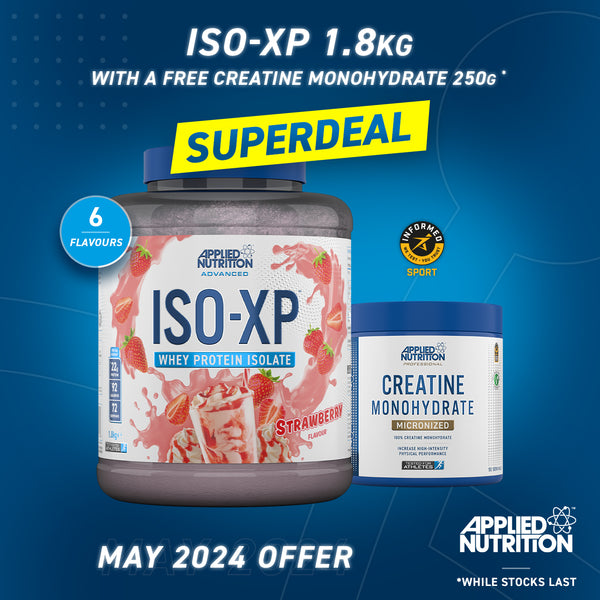
ISO-XP 1.8kg - 72 Servings
£6995
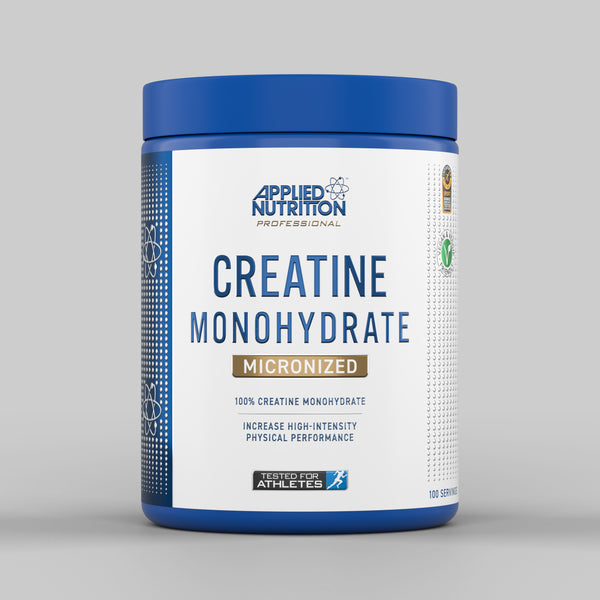
Creatine Monohydrate
£1995



